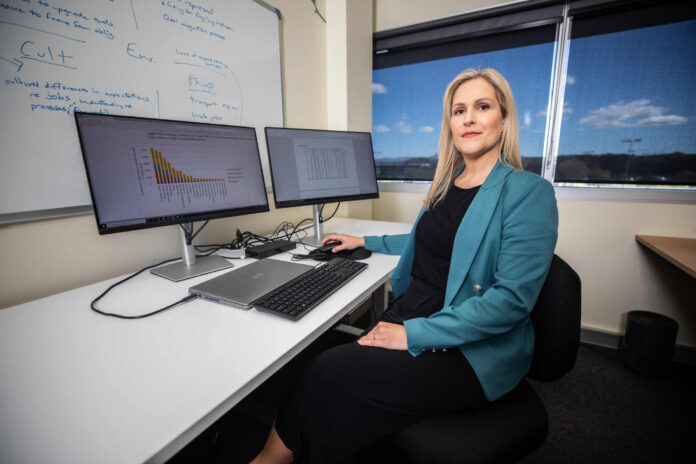University of the Sunshine Coast-led research has, for the first time, estimated the healthcare costs of Queenslanders who survived cancers in the 20 years to 2016.
A team, led by Dr Katharina Merollini, studied the long-term health service costs of more than 230,000 people between 2013 and 2016, who had been diagnosed with a first primary malignancy from 1997 onwards.
“We found the average health service cost per person each year was $15,890,” Dr Merollini said in a UniSC press release.
Dr Mollini, a Health Economics academic from UniSC and the Sunshine Coast Health Institute, said the research broke down the costs per person for different types of malignancies.
Do you have an opinion to share? Submit a Letter to the Editor with your name and suburb at Sunshine Coast News via: news@sunshinecoastnews.com.au
“The highest annual health service costs per person were for the bone marrow disease myeloma ($46,000), brain cancer ($30,300) and liver cancer ($29,600),” she said.
“These figures counted all medical and allied health services, hospitalisations, emergency admissions and prescribed pharmaceuticals in that period, both related and unrelated to cancer.”
The paper Cancer Survivors’ Long-Term Health Service Costs in Queensland, Australia is published in the International Journal of Environmental Research and Public Health.
It is co-authored by Associate Professor Louisa Gordon of QIMR Berghofer Medical Research Institute, The University of Queensland and QUT, Dr Yiu Ho of Central Queensland Hospital and Health Service and UQ, Professor Joanne Aitken of Cancer Council Queensland, and Professor Michael Kimlin of QUT.
Professor Aitken of Cancer Council Queensland said, “Given the enormous cost of cancer to the health system and knowing that one-third of cancers are preventable, a strong and clear message from this research is the importance of more investment in cancer prevention.”
Dr Merollini said the cumulative average annual healthcare expenditure on all cancer survivors in Queensland between 2013 and 2016 was $3.66 billion.
“According to the data, the highest costs were incurred by patients with a history of prostate ($538 million), breast ($496 million) or colorectal ($476 million) cancers,” she said.
“These costs were typically highest in the first year after diagnosis and decreased over time.”

She said it was the first population-level research on the health service costs of Queensland cancer survivors beyond the initial years of treatment and including all age groups and health conditions.
“It reveals a huge impact to health services.”
“We hope the results will inform planning by policy makers in Australia, provide data for economic evaluations and reinforce the benefits of investing in cancer prevention.”
Cancer survivorship
• Worldwide, there are 19.3 million new cancer cases per year, expected to increase to 28.4 million cases in 2040.
• Different stages are described as acute (diagnosis to treatment), chronic (ongoing), long-term/late survivorship (after five years post diagnosis) and cured (disease-free).
• In Australia in 2021, there were an estimated 151,000 new cancer diagnoses, and 1.1 million people living with a cancer history.
• The five-year relative survival of all cancers collectively is 70 per cent.
• Cancer treatment often has related long-term health and financial costs for patients and their families, from the physical (such as fatigue and cognitive problems) to the psychosocial (such as anxiety and depression), requiring ongoing medical care.
• The indirect burden of cancer spans productivity losses, carer time and reduced income, as well as intangible costs such as disruption to families and lifestyles.
Research data
• Every Queensland resident diagnosed with a primary malignancy (excluding basal and squamous cell carcinoma of the skin), between January 1997 and December 2015 was eligible for the study.
• It did not include costs incurred by private healthcare provided without Medicare involvement, or funded by private health insurance.
• Only 14 percent were aged under 45. About 52 pe r ent were male.
• The most common cancer types recorded were prostate cancer (17.6 per cent), melanoma (17.5 per cent), breast (16.2 per cent) and colorectal cancer (11.5 per cent). Mean age at diagnosis was 60.5 years.
• The lowest mean costs were recorded for individuals diagnosed with melanoma ($9500) and thyroid cancer ($8800).
SUBSCRIBE here now for our FREE news feed, direct to your inbox daily!





